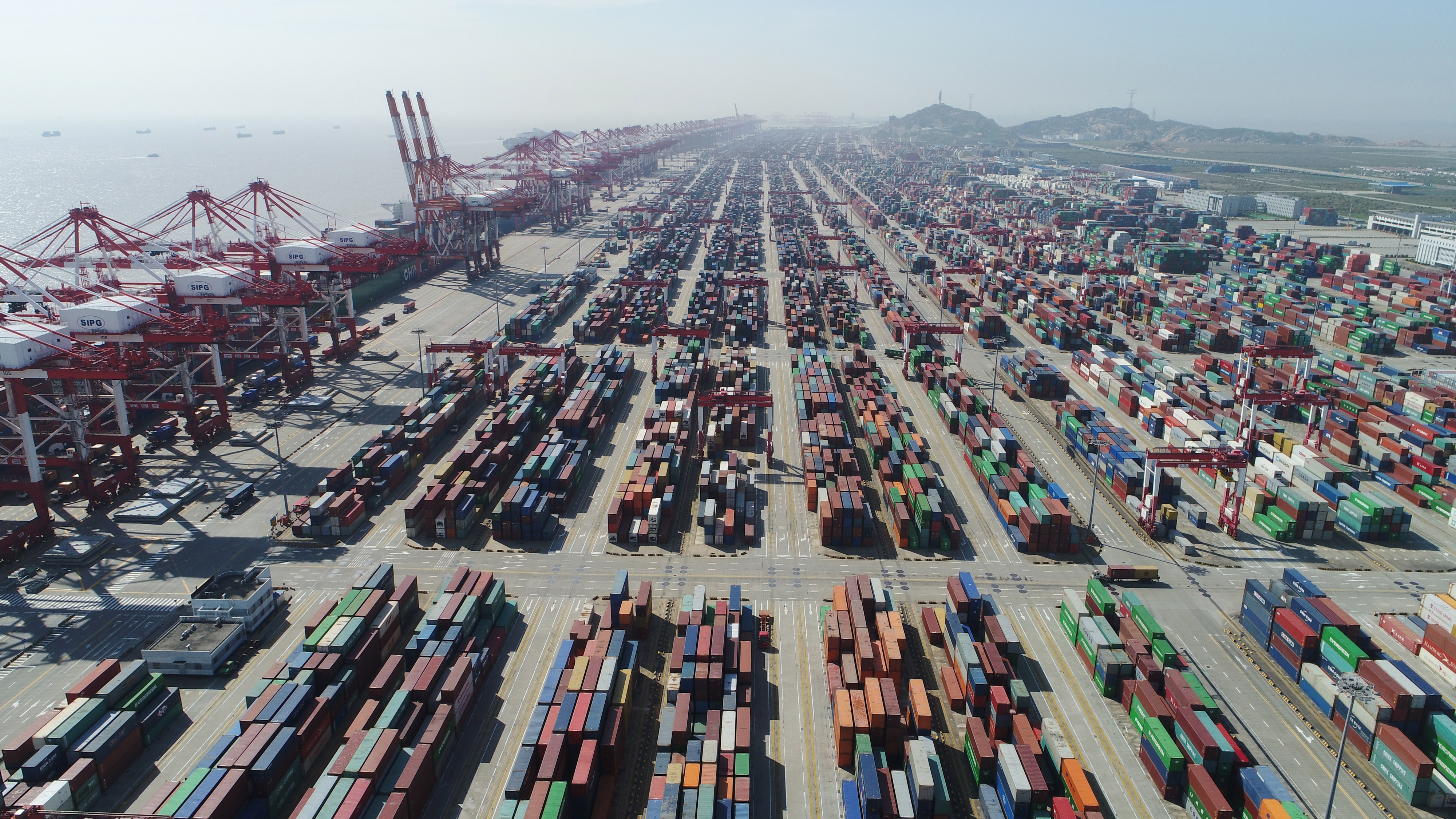Forming a new landscape of open financial markets
- By Yang Fanxin
 0 Comment(s)
0 Comment(s) Print
Print E-mail China.org.cn, July 10, 2019
E-mail China.org.cn, July 10, 2019

On July 2, Chinese Premier Li Keqiang addressed the opening ceremony of the Summer Davos Forum in the city of Dalian, highlighting the importance of seizing opportunities from the new round of industrial revolution, creating new opportunities and calling for efforts to jointly safeguard multilateralism, free trade and an open, inclusive world economic system. By forming a new open financial market, China will gradually scrap foreign ownership caps in the domestic financial industry and internationalization of its capital market.
At the 19th National Congress of the CPC, China set forth the tone of promoting the formation of a new landscape for all-round opening-up. To reflect the broad initiative of all-round opening-up, China's financial sector issued 11 measures last year to boost its financial opening-up, such as allowing foreign firms to have 51% ownership of their brokerage ventures, up from the previous 49%.
"Deepening reform and opening up" are the important key words in China's financial development process. Yi Gang, governor of the People's Bank of China, announced three principles for opening up China's financial sector at the 2018 Boao Forum for Asia annual conference: first, adopting the management model of pre-establishment national treatment (PENT) subject to a negative list; second, gradually promoting the opening-up of the financial sector and in coordination with reforms of the exchange rate formation mechanism and capital account convertibility; third, guarding against financial risks so financial supervision capabilities will keep up with the development of the opening-up.
Such opening-up policies are promoting the higher-level development of China's financial sector. In 2018, China began allowing foreign firms to apply for majority stakes in securities and mutual-fund management ventures. Foreign companies were allowed to take controlling stakes in life insurers. In 2019, China allowed local bank takeovers by lifting single-shareholder limits and scrapped some asset requirements for foreign companies to operate onshore. The Qualified Foreign Institutional Investors (QFII) and the RMB Qualified Foreign Institutional Investors (RQFII) regimes have also developed rapidly to welcome participation from an ever-larger number of countries and regions.
Many policies were put in place and foreign financial institutions enjoyed greater access to China's capital markets. On November 30, 2018, the CSRC issued a notice approving UBS AG to increase its shareholding in UBS Securities China to 51%, marking the first case of a foreign controlled securities company in China. On March 29, 2019, the CSRC approved the establishment of Nomura Oriental International Securities Co. Ltd and JP Morgan Chase Securities (China) Ltd, the first two foreign funded securities firms newly established by leading foreign financial groups since the promulgation of the measures. The People's Bank of China (PBOC) announced in January that it had approved the filing to establish S&P Credit Rating (China) Co. Ltd in Beijing, a wholly owned subsidiary of S&P Global, signaling the official entry of S&P Global into China's credit rating market. By January 2019, the State Administration of Foreign Exchange (SAFE) reported that the QFII quota had been raised to $300 billion, with 287 overseas investors granted a total quota of $101.3 billion; the RQFII regime had expanded to 19 countries and saw the quota rise to 1.94 trillion yuan, with 206 overseas investors granted a total quota of 648.6 billion yuan.
Meanwhile, many major breakthroughs can be seen in the internationalization of China's capital market. In 2018, China's A shares were officially included in the MSCI index, and FTSE Russell announced that it would include A shares in its index system. In addition, China's bonds would be gradually included in the Bloomberg Barclays Bond Index from April 2019, and in the same month, the Shanghai Stock Exchange and the Japan Stock Exchange Group signed an ETF interconnection agreement.
Moreover, China is further broadening market access to the financial sector and increasing the diversity of foreign funded financial institutions.
The Chinese Banking and Insurance Regulatory Commission (CBIRC) announced that it would further introduce 12 new opening-up measures, such as removing shareholding caps for both single Chinese or foreign funded banks to take stakes in Chinese funded commercial banks that comply with the principle of equal treatment for domestic and overseas capital; abolishing the requirements for foreign banks to meet minimum total asset thresholds to establish an entity in China, and allowing overseas financial institutions to take equity stakes in an existing foreign funded insurance company in China. China's financial market has great potential for foreign investors to boost their impact in the finance sector. According to CBIRC, foreign investments accounted for 2% of China's stock market and 2.9% of its bond market, and foreigners held just 1.6% of China's banking assets and 5.8% of the insurance market.
These new measures demonstrate China's strong will in reforming the financial sector. Except for further broadening financial market access, China is expanding the business scope of foreign financial institutions in the country, and bringing its capital market up to international standards through interconnection mechanisms and equal treatment of domestic and foreign investments.
Yang Fanxin is an associate research fellow at the Chongyang Institute for Financial Studies, Renmin University of China.
Opinion articles reflect the views of their authors only, not necessarily those of China.org.cn.
If you would like to contribute, please contact us at opinion@china.org.cn.






Go to Forum >>0 Comment(s)